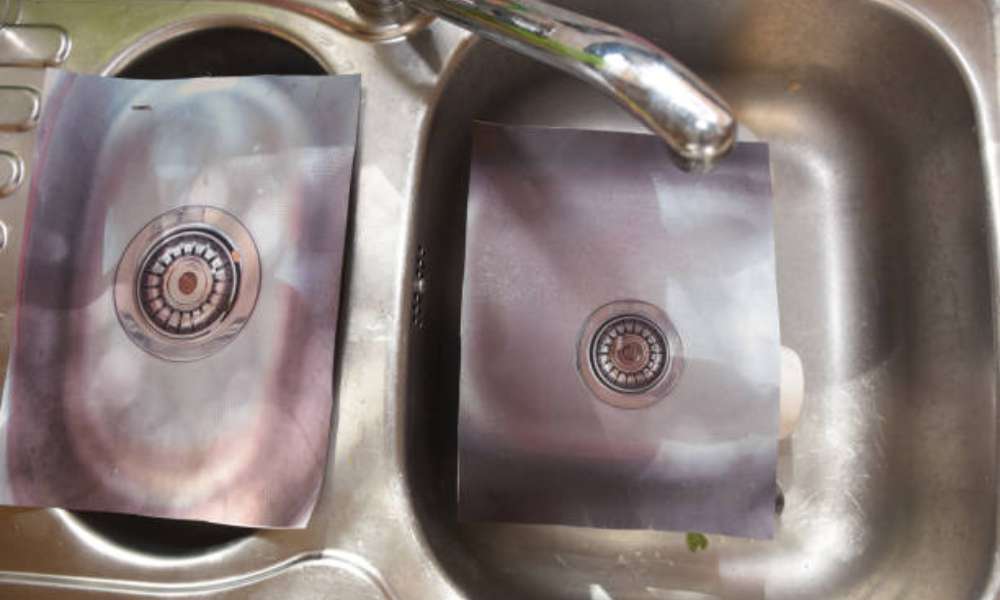Discovering little ants crawling on your kitchen counter can be A disconcerting sight for any homeowner. While these pests may seem harmless at first glance, How do i get rid of tiny ants on my kitchen counter addressing the issue promptly is crucial for maintaining optimal hygiene And cleanliness in your kitchen space. Tiny ants can quickly become A nuisance as they forage for food, Contaminating surfaces And potentially spreading germs in the process. Ignoring the problem can lead to A full-blown infestation, Making it even more challenging to eradicate these unwanted visitors. Therefore, It’s essential to take proactive measures to address the presence Of little insects
on your kitchen counter as soon as possible. By doing so, You not only maintain A clean And sanitary environment for food preparation but also prevent the proliferation Of pests in your home. In this blog post, We will explore effective strategies for getting rid Of little
insects And reclaiming control Of your cookery space.
What are the tiny ants on my kitchen counter, and why are they there?
Discovering little ants on your kitchen counter can be unsettling, But understanding their identity And reasons for being there can help address the issue effectively. These tiny insects are often common household pests like pavement insects, Odorous house ants, Or pharaoh ants, Attracted by readily available food sources. They are particularly drawn to sugary substances, Crumbs, And spills in the kitchen, Making countertops an ideal feeding ground. Their presence may also indicate an outdoor nest nearby, With foraging ants venturing indoors in search Of food. Addressing the issue involves not only eliminating their access to food And water but also locating And sealing Off entry points to prevent further intrusion. By identifying the type Of little insects on your cookery counter And understanding their motivations, You can implement targeted strategies to effectively manage And eradicate the infestation, Restoring cleanliness And peace Of mind to your kitchen space.
Are tiny ants harmful, and do they carry diseases?
Tiny ants found on kitchen counters may not pose A direct threat to human health, But their presence can still be concerning. While these ants are generally not harmful themselves, They can contaminate food surfaces And spread bacteria as they forage for food. Additionally, Their presence may indicate unsanitary conditions or potential entry points for other pests. While tiny insects are not known to transmit diseases directly to humans, They can still be A nuisance And cause discomfort. However, It’s essential to address ant infestations promptly to maintain hygiene And prevent potential health risks. By implementing effective eradication methods And maintaining cleanliness in the kitchen, You can minimize the impact Of little ants And create A safe And healthy environment for food preparation. Regular cleaning, Proper food storage, And sealing entry points are key steps in preventing ant infestations And promoting overall kitchen hygiene.
2. Identify The Ant Species
Identifying the ant species infesting your kitchen counter is the first step toward effective eradication. Different ant species may exhibit varying behaviors And nesting habits, Making it crucial to pinpoint the exact type you’re dealing with. By determining the specific species, You gain valuable insight into their behavior patterns, Preferred food sources, And nesting locations. For instance, Sugar ants are attracted to sweet substances, While grease ants are drawn to fatty foods. Understanding these tendencies allows you to tailor your eradication methods accordingly, Increasing their effectiveness. Knowledge Of nesting habits helps you locate And eliminate ant colonies at their source, Preventing future infestations. Some species nest indoors, While others prefer outdoor environments, So knowing where to focus your efforts is key. By accurately identifying the ant species And understanding their behavior, You can implement targeted strategies that address the root cause Of the infestation, Leading to more successful eradication outcomes.
3. Locate Entry Points
Locating And sealing entry points in your kitchen is A crucial step in effectively dealing with tiny ants on your countertops. These pests can gain access to your home through even the smallest cracks, Gaps, Or openings in walls, Floors, Or windows. Pay close attention to areas around pipes, Vents, And utility lines, As well as gaps in door And window frames. Once you’ve identified these entry points, It’s important to seal them Off promptly to prevent further intrusion. By sealing Off entry points, You create A barrier that denies ants access to your kitchen, Effectively reducing the likelihood Of future infestations. Taking proactive measures to locate And seal entry points is key to maintaining A pest-free environment And safeguarding your kitchen against tiny ant intrusions. How To Get Rid of Ants From Kitchen Counter, effective solutions to tackle this all-too-common issue.
4. Remove Food Sources
Removing food sources is A fundamental step in effectively dealing with tiny insects on your kitchen counter. These pests are attracted to food spills And crumbs, Which serve as an abundant food source for them. Therefore, It’s essential to clean up any spills or crumbs promptly to eliminate their food supply. Regularly wiping down countertops And surfaces, As well as sweeping, Can help prevent ants from finding food remnants to feed on. Additionally, Storing food items in tightly sealed containers further reduces the likelihood Of attracting insects. By sealing food items properly, You not only eliminate access to food sources but also prevent ants from contaminating stored food items. This proactive approach to removing food sources disrupts the insects’ foraging behavior, Making your kitchen less appealing to them. Ultimately, By depriving insects Of their food supply, You can discourage their presence on your kitchen counter And effectively manage the infestation.
5. Commercial Ant Baits
Utilizing commercial ant baits is A strategic approach to addressing tiny ants on your kitchen counter. These baits are specifically formulated to attract And eliminate the ant species infesting your kitchen, Making them highly effective in eradication efforts. When selecting ant baits, It’s essential to choose products designed for the specific species you’re dealing with, As different ants may be attracted to different bait formulations. Once you’ve chosen the appropriate bait, Placement is key to maximizing its effectiveness. By strategically placing ant baits in these locations, You increase the likelihood Of insects encountering And consuming the bait, Leading to colony elimination. Additionally, Regular monitoring Of bait consumption allows you to gauge the effectiveness Of your treatment And make adjustments as needed. Overall, Commercial ant baits provide A targeted And efficient method for combating tiny ants on your kitchen counter, Helping you achieve long-lasting relief from infestations.
6. Regular Cleaning Routine
Establishing A regular cleaning routine is essential for preventing future ant infestations And maintaining A hygienic kitchen environment. By adhering to A consistent schedule, You create A proactive defense against tiny ants And other pests that may be attracted to food spills And crumbs. This routine should include wiping down kitchen counters, Surfaces, And floors daily to remove any food residues that ants could be drawn to. Additionally, Regularly sweeping or vacuuming floors to remove crumbs And debris further reduces the likelihood Of ants finding food sources in your cookery. By maintaining cleanliness in your cookery, You not only deter insects from foraging for food but also create A less hospitable environment for them to thrive. This simple yet effective approach to regular cleaning can significantly reduce the risk Of future ant infestations, Allowing you to enjoy A pest-free kitchen environment.
7. Monitor And Evaluate
Monitoring And evaluating the effectiveness Of your chosen eradication methods is A critical step in successfully managing tiny ants in your kitchen. By observing an activity regularly, You can assess whether the strategies you’ve implemented are yielding the desired results. This involves keeping an eye on ant trails, Nesting sites, And any changes in their behavior patterns. For example, rid Of tiny ants on your kitchen counter If you notice A decrease in ant activity or A reduction in the number Of ants on your kitchen counter, It may indicate that your eradication methods are working effectively.
On the other hand, If ant activity persists or increases, It may signal the need to reevaluate your approach. This may involve trying different types Of baits, Repositioning ant traps, Seeking professional assistance if the infestation persists. By actively monitoring And evaluating the situation, You can stay one step ahead Of tiny ants And effectively manage their presence in your kitchen.
How can I prevent tiny ants from infesting my kitchen counter?
Preventing tiny ants from infesting your kitchen counter requires A proactive approach to minimize their access to food sources And entry points. Start by maintaining cleanliness in your kitchen, Promptly wiping down countertops, And cleaning up spills or crumbs that may attract ants. Store food items in tightly sealed containers to prevent insects from accessing them. Additionally, Regularly empty And clean garbage cans to remove potential food sources. Seal Off entry points by caulking gaps around windows, Doors, And pipes, As well as repairing any cracks or crevices in floors. Consider using natural deterrents such as vinegar, rid Of tiny ants on your kitchen counter Citrus peels, Or essential oils to repel insects from your cookery.
Monitor your cookery regularly for signs Of ant activity And address any issues promptly. By adopting these preventive measures, You can significantly reduce the likelihood Of tiny ants infesting your kitchen counter And maintain A clean And pest-free environment for food preparation.
Can I use household items like vinegar or baking soda to repel ants?
Household items like vinegar And baking soda can indeed be effective in repelling ants from your kitchen counter. Vinegar, With its strong odor, Disrupts the insects’ scent trails, Making it difficult for them to navigate And communicate with each other. Simply dilute vinegar with water And spray it along ant trails, Entry points, And countertops to deter ants from returning. Baking soda, On the other hand, Works as an abrasive agent that can disrupt ants’ exoskeletons And cause dehydration. Additionally, rid Of tiny ants on your kitchen counter Mixing baking soda with powdered sugar can create A homemade ant bait that.
When ingested by insects, Disrupts their digestive system And leads to their demise. While these household items may not provide A permanent solution to ant infestations, They offer non-toxic And environmentally friendly alternatives to chemical pesticides, Making them A safe And effective option for repelling ants from your kitchen counter.
Conclusion
Effectively getting rid Of tiny ants on your kitchen counter requires A combination Of proactive measures And persistence. First And foremost, It’s crucial to identify the type Of ants infesting your cookery And understand their behavior patterns to implement targeted eradication methods. This includes removing food sources, Using natural or commercial ant repellents, Sealing entry points, And maintaining A regular cleaning routine. You can significantly reduce the likelihood Of ant infestations And maintain A pest-free kitchen environment. However, It’s essential to emphasize the importance Of persistence And diligence in this process. Ant control may require ongoing efforts And adjustments to your approach based on the effectiveness Of your methods. By remaining vigilant And proactive, you can successfully manage ant infestations And enjoy A clean And hygienic cookery space for years to come. Remember, Consistency is key in maintaining A pest-free kitchen And ensuring the health And safety Of your household.





